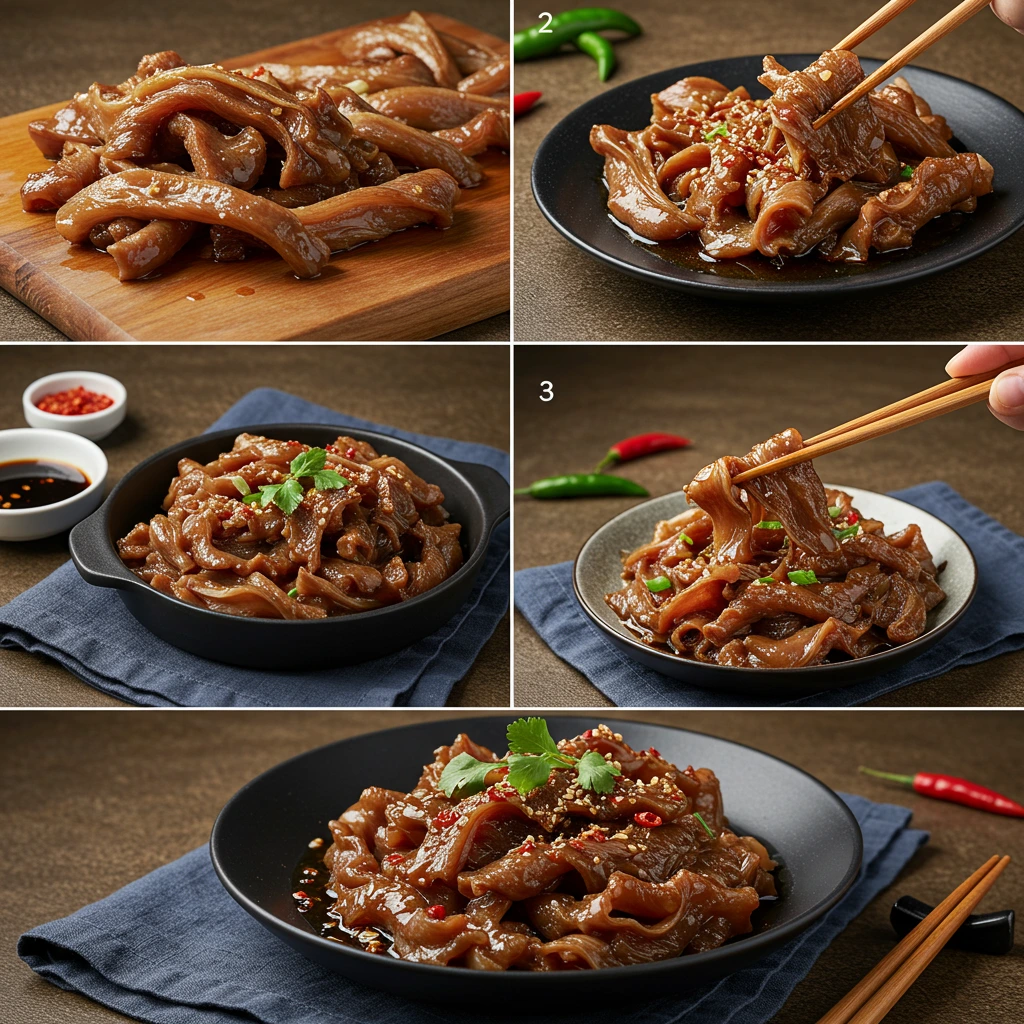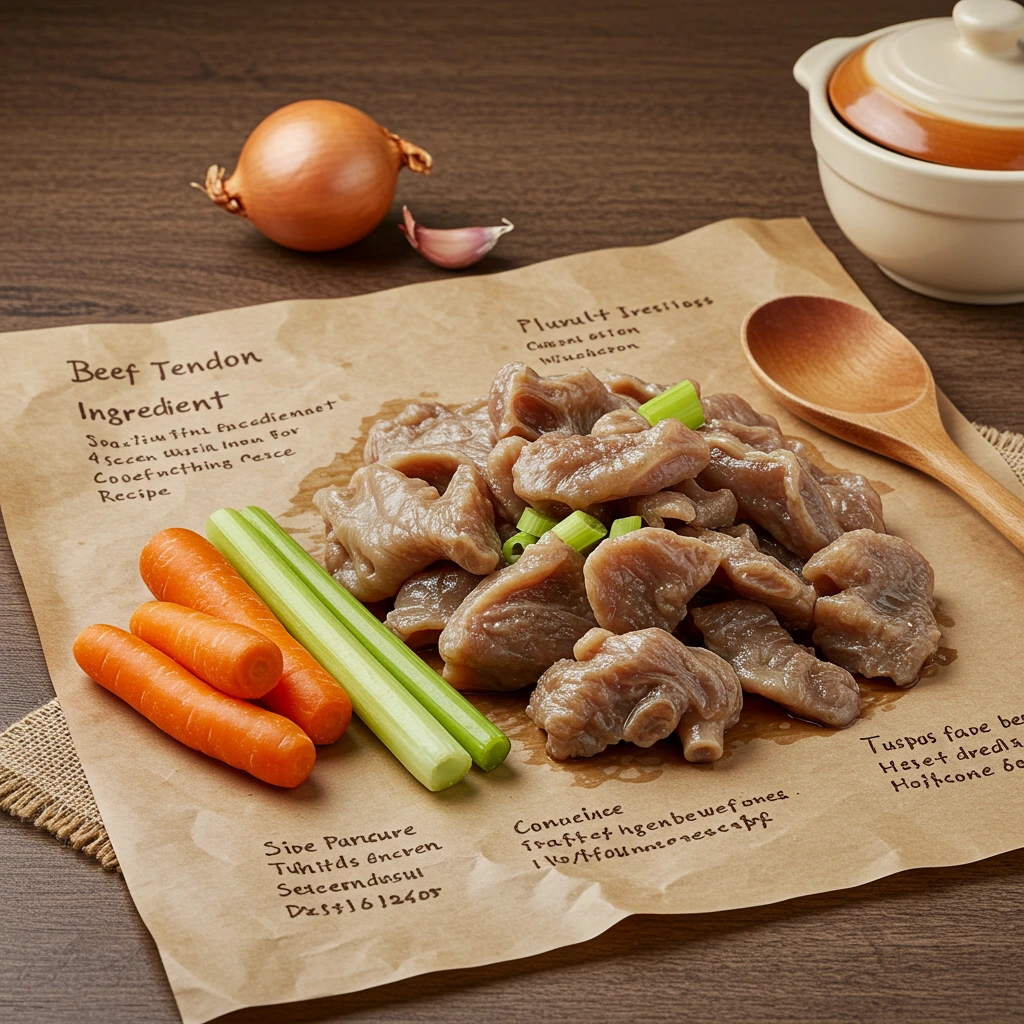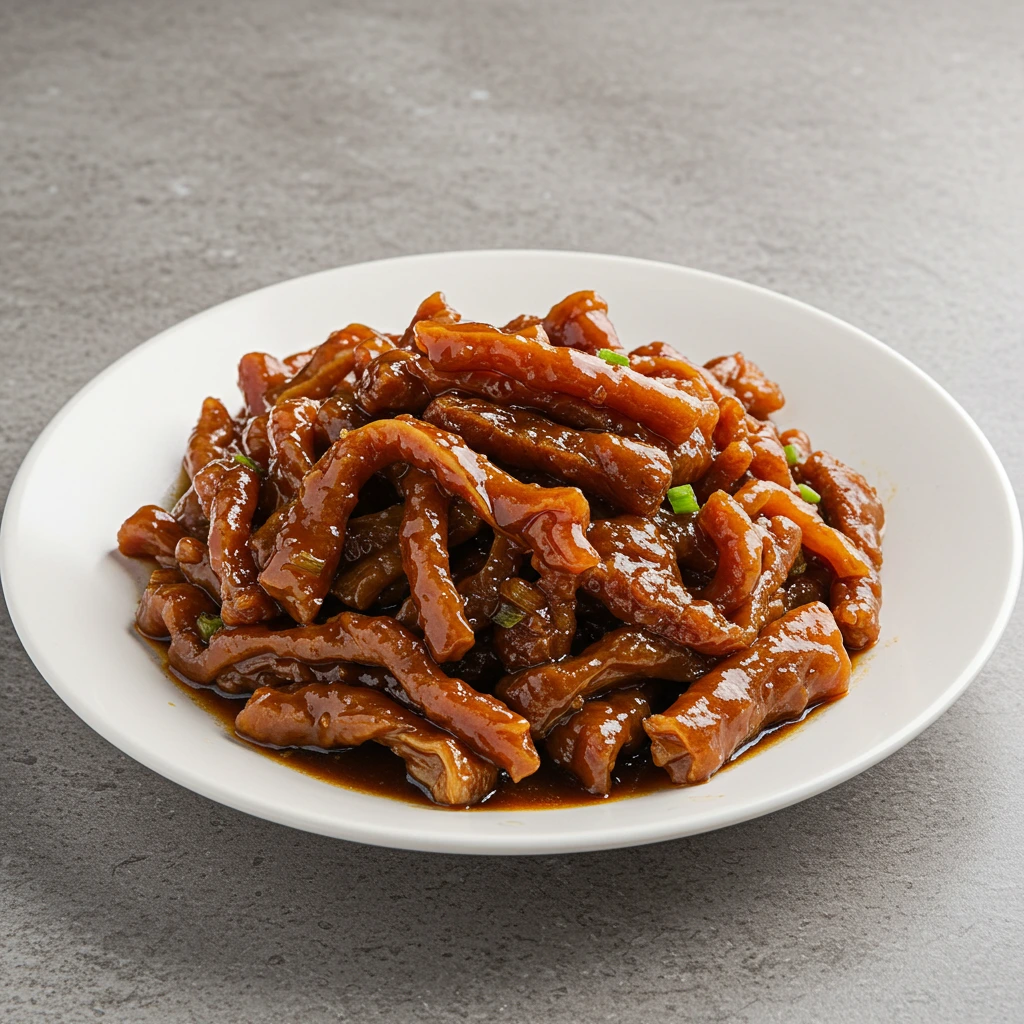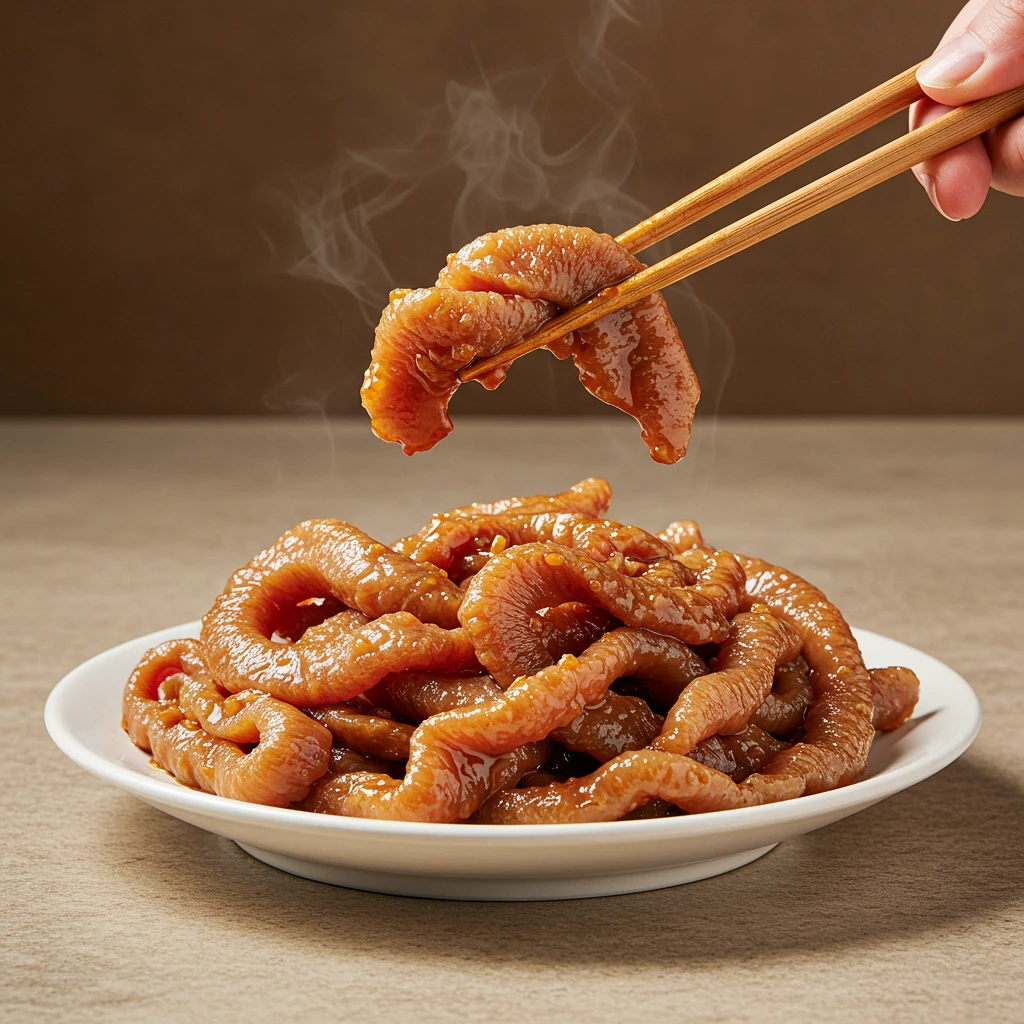Introduction: Why You Should Care About Beef Tendon
Imagine sitting down to a warm, comforting bowl of soup, the kind that nourishes both body and soul. Now, picture the soft, gelatinous texture of beef tendon melting in your mouth—a delicacy enjoyed for centuries across different cultures. If you’ve never considered adding beef tendon to your diet, you’re missing out on a nutrient-packed superfood that offers an incredible mix of protein, collagen, and essential minerals.
But is beef tendon truly healthy? Should you incorporate it into your meals regularly? This article breaks down everything you need to know about beef tendon nutrition, its, possible downsides, and the best ways to cook it to maximize its value.

Table of Contents
What Is Beef Tendon? A Brief Overview
The Role of Beef Tendon in Global Cuisines
Beef tendon is a connective tissue found in cows, primarily in the legs. It has been a staple ingredient in Asian, Middle Eastern, and Latin American cuisines for centuries, prized for its chewy, gelatinous texture when cooked properly.
You’ll often find it in:
- Chinese cuisine – Slow-braised with spices, soy sauce, and ginger.
- Japanese ramen – Adding richness and collagen to broths.
- Vietnamese pho – Simmered for hours to enhance the broth’s depth.
- Mexican dishes – Used in traditional stews and soups.
What Does Beef Tendon Taste Like?
Beef tendon doesn’t have a strong flavor on its own. Instead, it absorbs the flavors of the spices and broth it’s cooked in. The texture is its defining characteristic—when cooked long enough, it transforms into a soft, jelly-like consistency that is both satisfying and nutritious.
Beef Tendon Nutrition: What’s Inside?
When it comes to nutrition, beef tendon is a powerhouse of protein and collagen while remaining low in fat and carbohydrates.
Macronutrient Breakdown (Per 100g, Cooked)
| Nutrient | Amount | % Daily Value |
|---|---|---|
| Calories | 150-160 kcal | — |
| Protein | 30g | High |
| Fat | 4-5g | Low |
| Carbohydrates | 0g | None |
| Collagen | High | Excellent Source |
| Iron | 3mg | 17% DV |
| Zinc | 2mg | 18% DV |
Why Is Collagen So Important?
Collagen is the most prevalent protein in your body and is crucial for:
- Strengthening your skin, hair, and nails.
- Supporting joint and bone health.
- Improving gut health and digestion.
Since beef tendon is naturally rich in collagen, adding it to your diet can boost overall wellness, especially as you age.

Health Benefits of Eating Beef Tendon
1. Supports Skin and Joint Health
- Collagen in beef tendon helps reduce wrinkles, making your skin appear plumper and more youthful.
- Acts as a natural lubricant for joints, reducing stiffness and pain associated with arthritis.
2. A High-Protein, Low-Fat Superfood
- 30g of protein per 100g makes it a muscle-building powerhouse.
- Low in fat and carbs, making it a great choice for weight loss and lean muscle gain.
3. Enhances Digestive and Gut Health
- Collagen strengthens the gut lining, reducing inflammation.
- Helps with digestive disorders like leaky gut and IBS.
4. Improves Bone Density and Strength
- Packed with minerals like calcium and magnesium, beef tendon supports bone health.
- May reduce the risk of osteoporosis in older adults.
Potential Downsides: Is Beef Tendon Safe for Everyone?
While beef tendon is healthy for most people, there are some considerations.
1. High in Cholesterol? The Truth
- Yes, beef tendon contains cholesterol, but it’s not necessarily bad for you.
- Cholesterol from natural foods doesn’t always raise blood cholesterol levels—what matters is overall diet balance.
2. Who Should Avoid Beef Tendon?
- People with high cholesterol or heart conditions should consume it in moderation.
- Those with severe food allergies to animal proteins should consult a doctor before adding it to their diet.

How to Cook Beef Tendon for Maximum Nutrition
Cooking beef tendon requires patience, but the results are worth it.
Best Cooking Methods
- Slow Cooking: Breaks down collagen, making it soft and flavorful.
- Pressure Cooking: Reduces cooking time while keeping it tender.
- Braising: Infuses tendon with deep flavors from spices and sauces.
Simple Beef Tendon Soup Recipe
| Ingredient | Quantity |
|---|---|
| Beef tendon | 500g |
| Garlic cloves | 3-4 |
| Ginger | 1-inch piece |
| Soy sauce | 2 tbsp |
| Star anise | 2 |
| Water | 1 liter |
| Salt & pepper | To taste |
Instructions:
- Blanch the beef tendon in boiling water for 5 minutes, then drain.
- Simmer with garlic, ginger, and star anise for 3-4 hours (or use a pressure cooker for 45 minutes).
- Add soy sauce, salt, and pepper to taste.
- Serve hot and enjoy!
Frequently Asked Questions (FAQs)
Is beef tendon high in fat?
No, beef tendon is low in fat but rich in protein and collagen.
Is beef tendon good for weight loss?
Yes! It’s low in calories and high in protein, making it great for fat loss and muscle building.
Can I eat beef tendon every day?
Moderation is key! While it’s nutritious, too much can increase cholesterol intake.
Does beef tendon have any carbs?
No, beef tendon is completely carb-free, making it perfect for keto diets.
How do I store cooked beef tendon?
Keep it in an airtight container in the fridge for up to 3 days or freeze for up to 3 months.
Should You Eat Beef Tendon?
If you’re looking for a nutrient-packed, high-protein food that supports skin, joints, digestion, and overall health, beef tendon is an excellent choice. Whether you’re an athlete, on a collagen-rich diet, or simply looking for a new comfort food, this superfood deserves a spot on your plate.
Try It Today!
Next time you’re at the butcher or Asian grocery store, pick up some beef tendon and try one of the recipes. Your body will thank you!

